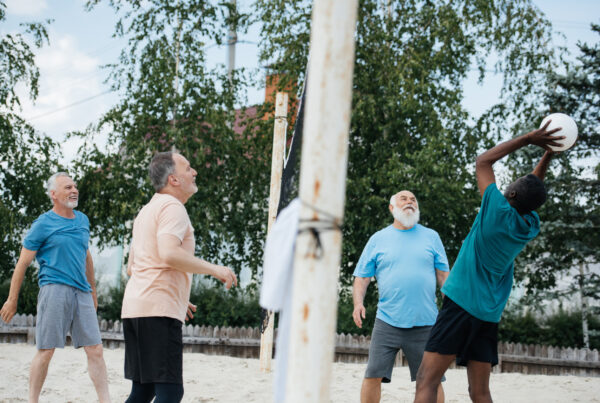”Question: Are the negative effects of alcohol reversible and if so, can exercise help?
Reading time: 4 Minutes
MWi Hack:
- Learn how alcohol can affect your fitness performance
MWi Summary:
- Alcohol can decrease your workout and overall fitness performance through lowering coordination and slowing reaction time.
- Studies show that alcohol decreases muscle recovery and hypertrophy, which can also negatively affect any weight loss goals.
- From a habit point of view, it will be more difficult to make it to the gym consistently if you drink many nights. Alcohol contributes to dehydration and fatigue.
- Consistent exercise can boost energy levels and moods, which can decrease the craving or urge to drink.
The Relationship Between Alcohol And Fitness
Alcohol and fitness have an often opposing relationship. Alcohol use decreases overall fitness and hampers an individual’s ability to achieve their fitness goals. However, improving physical fitness through a variety of methods, such as working out and eating a healthier diet, is one of the most effective ways to combat alcoholism and counteract the many negative health effects that it causes.
Effect Of Alcohol And Fitness And Performance
Drinking alcohol as a regular pattern can negatively affect your performance in the gym when you play sports, and in everyday life. Alcohol is a sedative that slows down functioning. It weakens hand-eye coordination, impairs judgment, and slows down reaction time. When you are active, no matter what you are doing, all of these functions are imperative to keep up the pace and efficiently be aware of your surroundings. Playing any sport requires top-notch attention due to the fast pace and quick reaction time needed to win. Alcohol impairs your ability to perform at your highest level, costing you the game or ending your workout early.
Effect Of Alcohol And Fitness On Weight-Loss Goals
Alcohol is known for containing empty calories, or calories that provide little to no nutritional value. Drinking right after a workout could set you back from your weight loss goals. A study was done to show how drinking affects working out. A group of men performed an intense workout and then drank a couple of drinks. The results showed muscle building and recovery, also known as protein synthesis, decreased by 37%.
Many times, when you reach for an alcoholic drink, you mix it with a sugary liquid, such as juice, to amplify the taste. Drinking sugary drinks after a workout actually stops the fat-burning process, leaving you back to where you were before you put all of that hard work in the gym.
Effect Of Alcohol And Fitness On Dehydration And Fatigue
Working out leaves you dehydrated due to the sweat excreted during each exercise. Alcohol is a big culprit in dehydration as well. Mixing the two enhances the problem. Exhaustion and fatigue can be a result. Dehydration from both activities can also lead to a worse hangover, and when you have a hangover complimenting fatigue, your chances of going to the gym the next day are slim to none. If you love to do cardio and love your glass of wine right after, you could be stripping your body of glycogen. Glycogen allows your body to work out at high intensities. Slowing down this hormone might cause faster fatigue the next time you decide to work out.
Effect Of Alcohol And Fitness On Soreness And Muscle Repair
Every time you work out, you tear your muscles. These muscle tears are part of what causes the soreness you feel until they heal with the use of a human growth hormone. Drinking alcohol after a workout prevents efficient healing of the muscles by decreasing the secretion of the hormone. As a result, you will feel sore longer and have to wait a longer time period for your muscles to fully heal. Binge drinking also plays a role in decreasing your gains from the gym. Instead of increasing testosterone levels, which would help grow the muscles, alcohol increases the hormone cortisol (the same hormone that causes stress) and destroys all the muscles you were trying to build.
Effects Of Fitness On Alcohol
Alcohol can slow down your metabolism, weaken your muscles, and give you fatigue. Excessive alcoholism does not just affect you in your fitness goals, it affects you in your daily life. You feel more sluggish, you start to choose alcohol over other things you love, and then everything seems to start falling apart.
Although alcohol is bad for fitness, fitness is great for alcoholism. Studies show the more you exercise and are physically active, the less you tend to drink. Exercising pumps up your blood, and good blood circulation brings about good feelings. The natural release of dopamine that you get from working out helps prevent you from turning to the unnatural release of dopamine from alcohol to cope with bad feelings. Making the good choice to workout instead of drink also promotes continuous good choices in your life, leading to smarter actions and happier occurrences.
Working out is also a great stress reliever to take advantage of instead of drinking to feel the sedative effects of alcohol. Try going for a run to relieve your stress instead of reaching for a glass. Your mind and body will thank you later on.






